With Her New Exhibition in Berlin, Azade Köker Imagines a World in the Wake of War
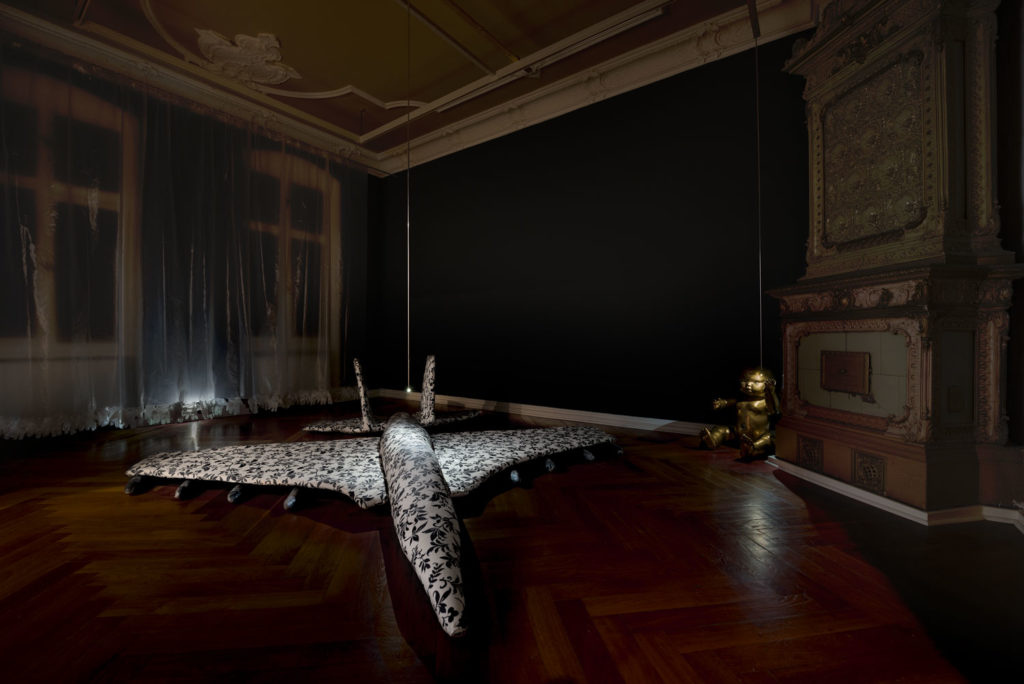

Artnet Gallery Network

“Algorithmic thought dominates our lives in every area today,” says artist Azade Köker, speaking to the title of her new show, “Verblendet” (German for “blinded”), on view now at Zilberman Gallery in Berlin.
“This situation causes the objects and processes that bind us closely to all kinds of life-chains to necessarily move away from reality. The title refers to the motive of blindness through repression and manipulation in the direct environment of a human being: the control system.”
Bringing together new sculptural works from the 70-year-old artist, who splits her time between Istanbul and Berlin, the show sets its sights on socio-political and environmental issues such as war, immigration, and the relationship between urbanism and nature—themes that have been present in Köker’s output since the early ’80s.
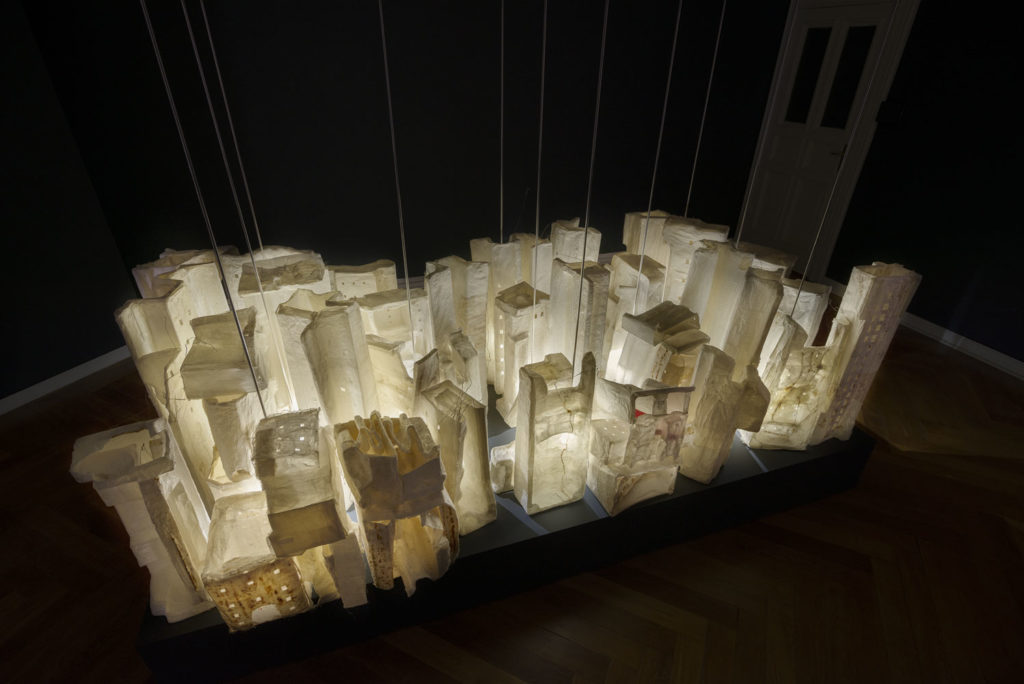
Azade Köker, Relikte der Stadt (2018). Courtesy of the artist and Zilberman Gallery. Photo: Katrin Hammer.
See, for instance, Relikte der Stadt (2018). An expansive installation of 47 boxy paper sculptures, the composition looks like the remnants of a jagged city skyline, ravaged by war or social collapse. In a separate, smaller sculpture, Verlassene Dichte (2017), a horde of thin paper rectangles are crammed into an upturned satellite dish.
Paper is an important material in the context of the show, though Köker doesn’t consider herself a “material fetishist.” “I always see paper as a skin,” she tells artnet News. “It is just as vulnerable and fragile. But I can work with any material. What is more important for me is the expressions.”
“My paper-works are transparent, and therefore, through the penetration of light, they form spiritual spaces that are not neutral shells but objects shaped by certain materials. The cavities are structuring elements as well as being filled volumes. The empty spaces are important dimensions in my work. They are not empty spaces that mean nothing, but they represent ‘not yet’ and ‘not anymore’; the intermediate situations.”
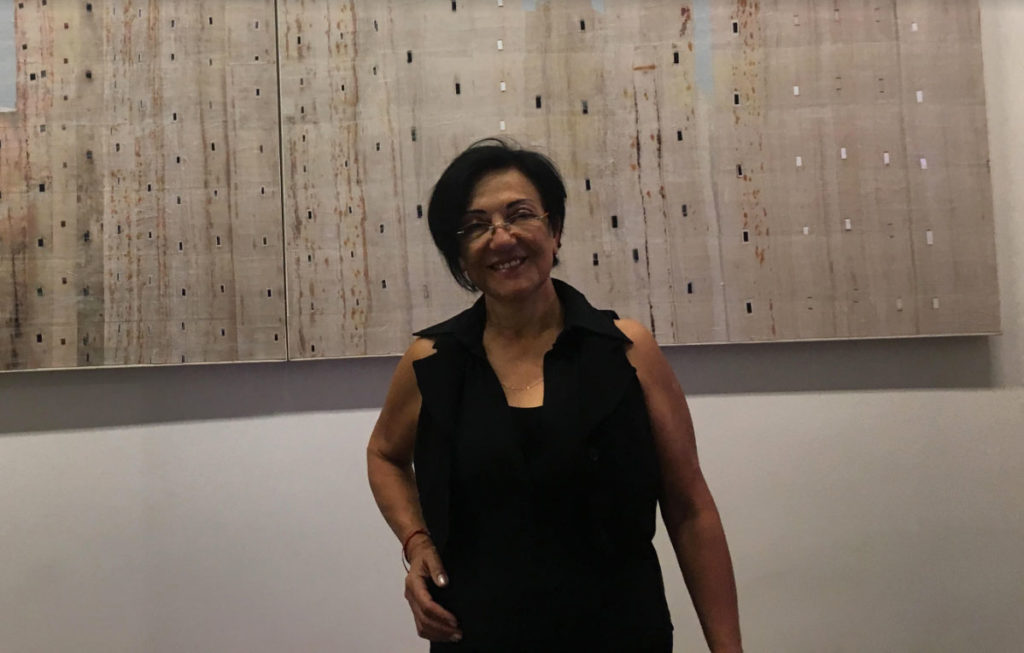
Azade Köker, 2018. Courtesy of the artist and Zilberman Gallery.
The plane is another important motif, appearing throughout much of the show in a variety of forms, from a 145-inch aircraft erected from steel and covered in a floral-patterned fabric (Nützlich, jede Wohnung braucht es, 2018) to a group of mixed-media collages depicting fighter jets flying in formation overhead, as if in preparation for an airstrike on the buildings below (Köker’s “Invasion” series).
But for the artist, the plane’s physical properties are as important as its symbolic value.
“My personal focus is to create a precise sculptural intervention in space,” explains Köker. “Clearly it’s a ‘sign against the war.’ The object in the form of a war instrument, say, a fighter jet, which is covered with patterned fabric like a piece of furniture, is domesticated in the household and trivialized. This is a female destruction of an idea related to war and violence.”
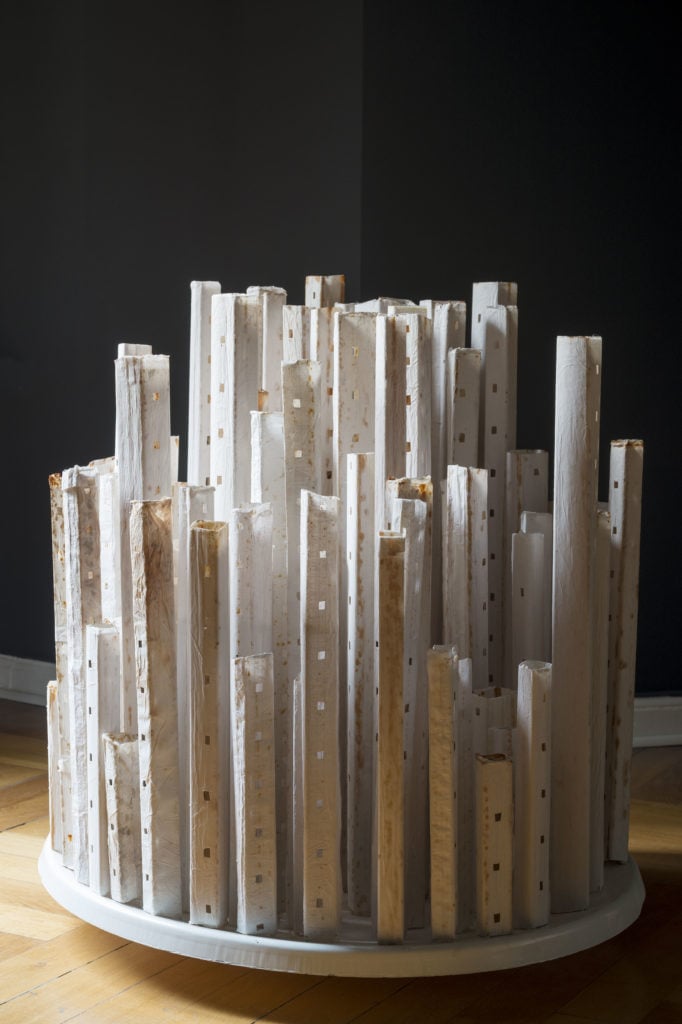
Azade Köker, Verlassene Dichte (2017). Courtesy of the artist and Zilberman Gallery. Photo: Katrin Hammer.
Köker, a staunch anti-war advocate, depicts a world beset by mass destruction, fragile and feminine, the suggestion of violence present at all times. For her, it’s a means of coping with the state of life today.
“I use art as a tool to get to know myself and the world,” she says. “I want to confront them with reality. Art is an instrument for me to consciously deal with the environment and time. Through art, we hope to change our perception of reality, to exchange the given materiality of the world with a new form.”
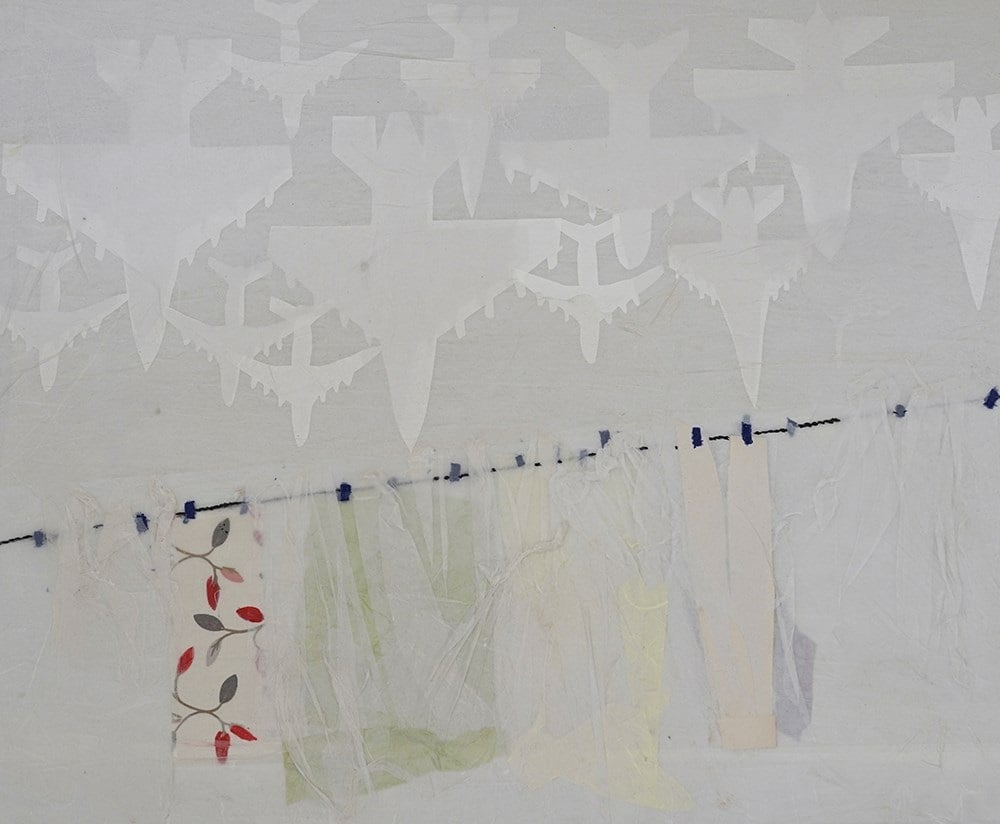
Azade Köker, Invasion 2 (2018). Courtesy of the artist and Zilberman Gallery.
“Verblendet” is on view through February 2, 2019 at Zilberman Gallery’s Berlin location.